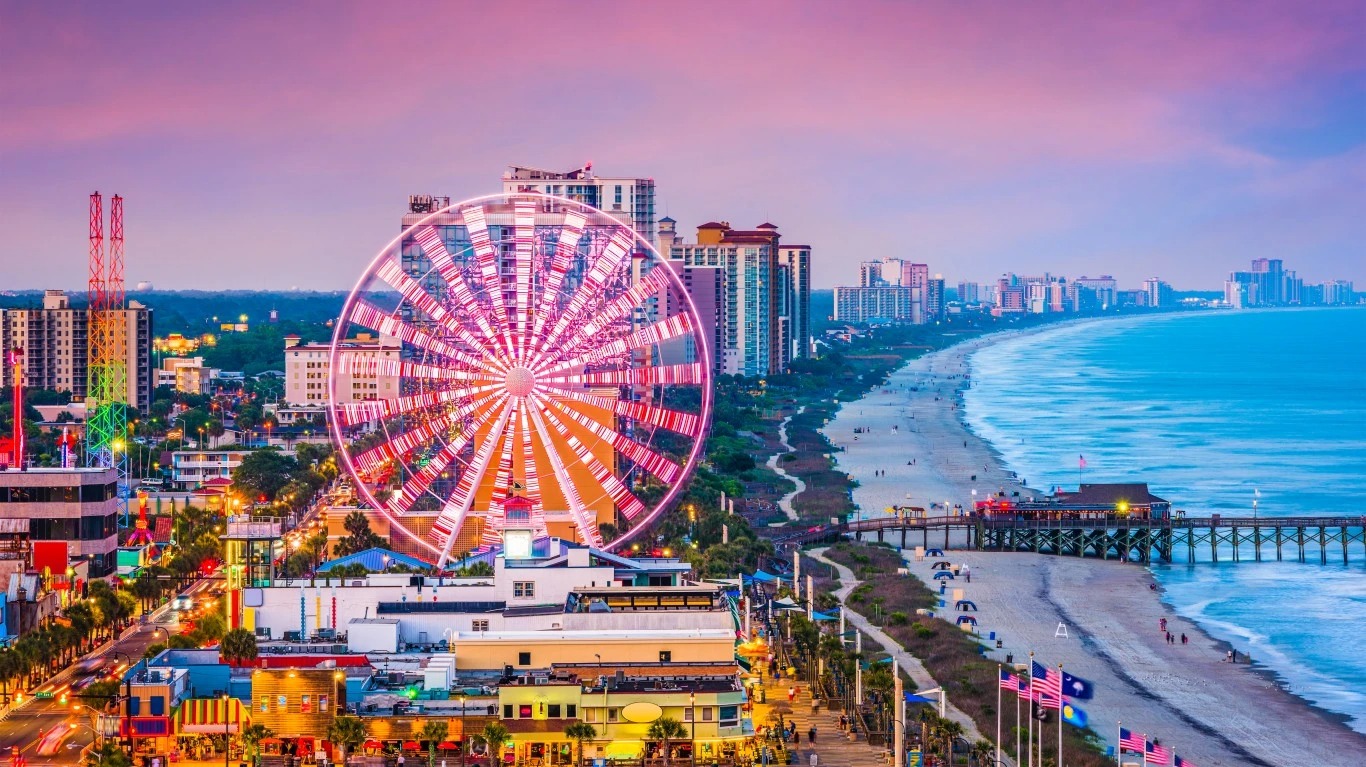
The population of the United States is forever shifting, with changing birth and death rates as well as immigration and migration patterns. The result is that while some parts of the country are stagnating or losing people, others are growing rapidly, a trend that is likely to continue in the coming years.
The U.S. population continues to move away from the Northeast and Midwest to the South and Southwest. From 2010 through 2020, the U.S. population increased by 7.4%, but in states like Florida, Texas, Nevada, And Utah, the population grew at about double the pace. Over the coming years, these trends will largely continue, according to one data firm. The firm also projects that in a number of metropolitan areas, populations will grow by 50% or more, and in a few places they will more than double.
To determine the 40 cities that will have the fastest population growth over the next few decades, 24/7 Wall St. reviewed current metropolitan area population data and population projections data from Washington, D.C.-based firm Woods & Poole Economics, Inc., Washington D.C. Copyright 2022. Metropolitan areas were ranked based on the projected percentage change in population from 2022 to 2060.
The 40 cities on the list are projected to grow in population by at least 50% by 2060. On the other hand, these are America’s disappearing small towns.)
The projections from Woods & Poole generally seem to assume the same trends of the past decade will continue. Of the 40 places on this list, 32 also ranked the top 50 for population growth between 2010 and 2020, based on decennial census figures. The metropolitan area with the largest projected population growth, the retirement community-centric metropolitan area of The Villages, Florida, had a nation-leading 39% population growth between 2010 and 2020.
Florida has by far the greatest representation on this list, placing 10 of the 40 metropolitan areas on the list. Many of these metros, as well as some of those in other states, such as Myrtle Beach, South Carolina, have had growing populations in part because the baby boomer generation continues to move to warmer climates to retire.
Some of the other metropolitan areas with substantial projected population growth, such as Austin, Texas and Provo, Oregon, have relatively younger populations. These places owe their growing populations to growing economies, with each having undergone substantial growth in tech and professional sectors over the past decade. Should these places sustain their economic growth, they will likely have much larger cities by the second half of the 21st century. (These are cities with the strongest economies in 2022.)
Click here to see cities that will grow the fastest in the next few decades.





